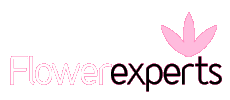
Flowers in Chinese Medicine
by Kerry Joyce on July 2nd
Chinese Medicine
Traditional Chinese medicine, which has been around for thousands of years and pertains to the intimate relationship between the environment and individual human life, claims to provide an alternative to conventional medicine in a number of cases. Although any doctor will tell you that it is always advisable to seek professional medical help whenever necessary, advocates of traditional Chinese folk-medicine claim that it provides an altogether different approach to curing all kinds of ailments. Many followers of Chinese medicine have adopted its treatments alongside conventional medical practices, especially when faced with a serious illness or disease. Of course, because Chinese medicine is rooted in cosmology, mythology and various philosophical doctrines, it is far less about science than it is spiritual awareness.
As with folk-healing cultures worldwide, advocates would hold that it to enjoy the full benefits of Chinese medicine it is necessary to keep an open mind, free from the suspicions of western thinking. This may have some basis in empirical fact; the placebo effect, for example, depends at least partially on the suspension of the patient's disbelief (or their ignorance of the placebo's existence). So perhaps a certain suspension of such distrust is necessary to enjoy the benefite of traditional Chinese medicine.
Many different types of flowers are used in Chinese medicine to solve everyday ailments. Furthermore, Chinese floral medicine is not always about curing a specific illness, with various flowers employed more generally, to maintain a healthy state of mind and body.
The chrysanthemum is one of the most important flowers in Chinese medicine, used in a delicious tea which aims to clear the mind and strengthen the lungs. White chrysanthemums are also used to soothe sore and irritated eyes, whilst yellow chrysanthemums are used against fevers, headaches and dizziness. Chrysanthemum tea is also used to treat high blood pressure.
Other floral remedies which form a part of this method of healing include roses, lilies and orchids. Roses are used to quicken the blood, whilst the lily, orchid and jasmine are commonly used to calm the spirit and relieve symptoms of stress.
Of course, many of our conventional medicines today are derived from floral or herbal origins; in his song 'Storm', Tim Minchin famously cited the example of the aspirin, derived from the bark of the willow. For those facing serious discomfort or illness, these pharmaceutically tested medicines should always be the first port of call. But there's rarely smoke without fire, and folk traditions such as Chinese floral medicine may yet have useful things to tell us about looking after our body on a daily basis -- as well as providing a fascinating branch of folklore to study.
Written for you by flower experts, giving you tips and advice on everything flower related. Read interesting flower facts and news.

